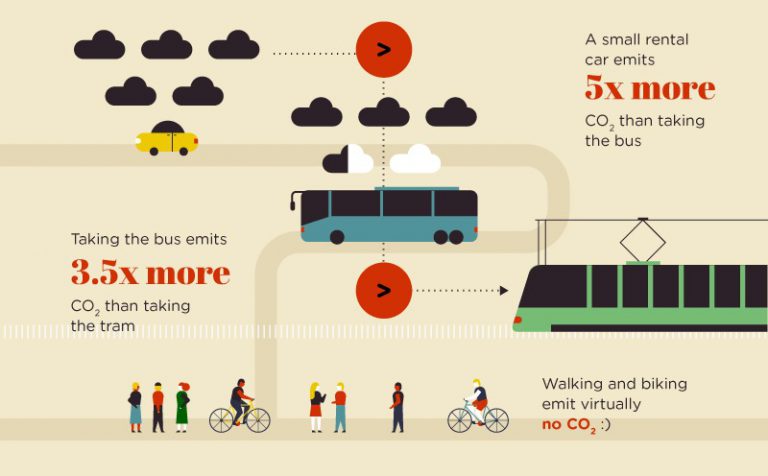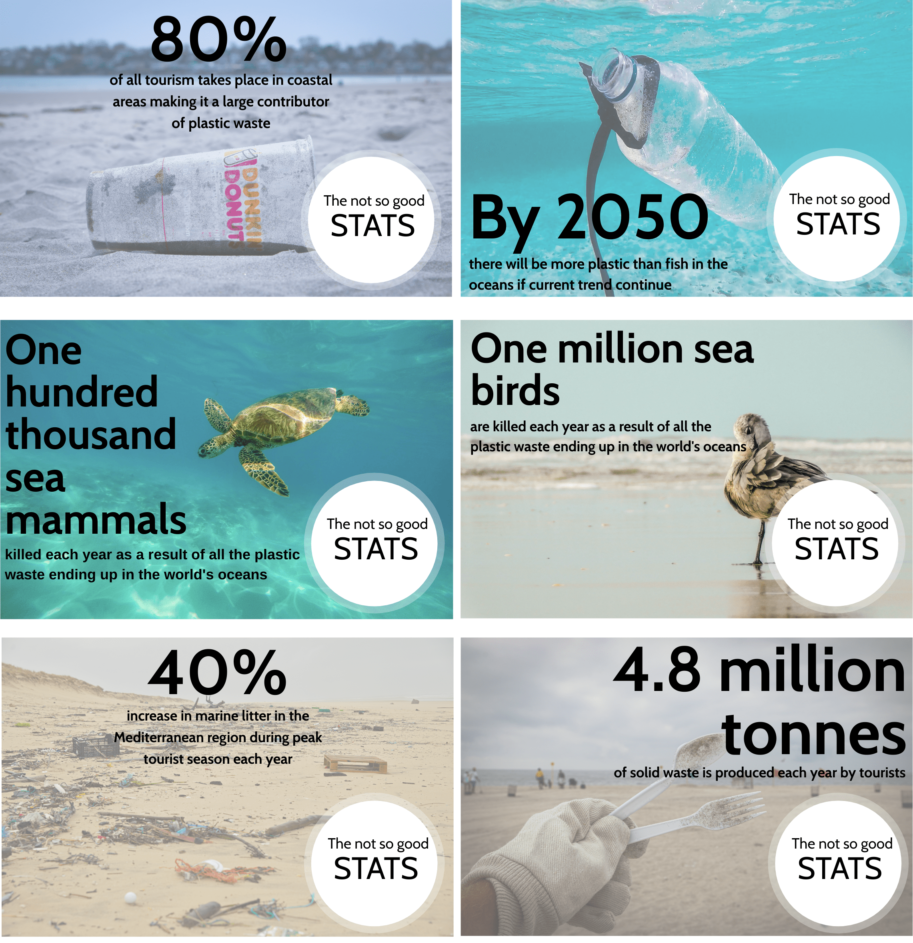Climate crisis is not a buzzword anymore! Around the world, citizens are waking up to the responsibility they have towards reducing their carbon footprints. And that includes travelling more responsibly. In fact, according to Booking.com – 91% of Indians today WANT sustainable travel options.
So what can you do to ensure your travel business lives up to these expectations?
Here are 7 ways you can make your travel business greener
- Choose destinations suited to eco-tourism
- Evaluate different ways of getting there
- Book eco-friendly accommodations
- Ensure minimum food and plastic waste
- Encourage responsible conservation practices
- Partner with local communities
- Plan low carbon footprint activities
Contents
- 1 Choose destinations suited to eco-tourism
- 2 Evaluate different ways of getting there
- 3 Book eco-friendly accommodations
- 4 Ensure minimum food and plastic waste
- 5 Encourage responsible conservation practices
- 6 Partner with local communities
- 7 Plan low carbon footprint activities
- 8 A resource for your business needs
Choose destinations suited to eco-tourism
If you are a travel agency that wants to ensure you are doing your bit for a greener planet, choose destinations that are sustainable in nature. What does that mean?
These are tourist destinations that are contributing to a thriving biodiverse ecosystem. Also, known as eco-tourism, this involves travel to destinations that are rich in flora, fauna and cultural heritage.
Visiting these places help tourists appreciate the natural resources that our nation has, and encourages people to preserve them.
Check out this list of eco-friendly destinations by Culture Trip that you can plan for!
Evaluate different ways of getting there
It is a known fact that going to places that are far away will have a bigger impact on the environment. Especially if there is air travel involved.
If air travel cannot be avoided then try and minimise the travelling carbon footprint to reach the destination. Try trains, or flying economy.

When at the destination, walk or take bicycles whenever possible.
Plus point: A bicycle will allow you to travel deeper into remote areas.
And the easiest way is to just utilise the public transport available. This not only massively reduces the environmental impact but also helps the local community.
Book eco-friendly accommodations
Camping, tents, and homestays are some of the most eco-friendly options to stay at.
If you do want a bit of luxury, you can always evaluate your hotel stay options before booking, There are plenty of hotels and hostels that disclose their sustainable practices on the booking platforms.
Check for these things:
- Are these stays using renewable energy sources?
- Do they employ locally?
- How do they give back to the community?
- Do they have practices that replenish greenery?
- Are they strict about water wastage policies?
Booking.com recently launched the first of its kind – “Travel Sustainable” badge that rates the hotels on their sustainability measures.
Here is a list of 6 eco-friendly stays in India that you can choose the next time!
As a travel business, you can ensure the hotels and stays that you book have the right balance of comfort, safety and green practices.
Ensure minimum food and plastic waste
It is your responsibility as a travel business owner to see that the tourists who are your customers are aware of their habits. Here are a few tips:
- If you are arranging for food, stress on minimum food wastage
- After every trip to a location, check for waste strewn about
- Always highlight recyclable bins in that area
- Check for composting options in the destination you have chosen
- Research for the location’s cleanliness & wastage policies
- Do not give out packages that are plastic intensive
- Avoid using a lot of paper for document purposes (Go digital!)
This blog by the Good Travel Guide shows us the dark side of tourism and the horrible impact we leave behind!

Encourage responsible conservation practices
It’s just not cool to be careless anymore. It’s common sense now that every person should make conservation practices a daily habit.
The lavish practices of tourists often end up having deep negative impacts on the local community.
“In a developing country, a village of 700 uses an average of 500 liters of water per month, while a luxury hotel guest uses 1,800 liters per night,” Bruno Correa, founder of sustainable tourism association – Bee + Hive
When travelling here are a few things that all tourists must do:
- Switch off lights fans, ACs, and geysers when not in use
- Use water conservatively – don’t leave taps running, take short showers
- Carry your own towels
- Ask your hotels what you can do to conserve water and energy
- Avoid using laundry services
- Opt for reusable water bottles, cups, food storage containers, shopping bags and straws
Related read: Live From A Lounge has been enabling smart travelling; one loyalty point at a time
Partner with local communities
The idea is to always leave a place slightly better than when you found it. As a travel business, you should ensure that the trips you plan somehow support the local ecosystem.
This could mean hiring local guides, or partnering with local communities so that they can show you the different gems of the location while also helping it thrive economically and ecologically.
Staying at local inns, or partnering with local leaders for stay options are much more beneficial to these communities than staying at high budget hotel chains.
You can also set aside a part of the budget specifically for environmental donations. Many spots in India that are rich in natural resources depend upon these donations for their conservation.
Plan low carbon footprint activities
As a travel business, your priority is to ensure your customers can enjoy the trip. But that doesn’t need to incur high ecological costs.
You can plan activities that have a low carbon footprint and also allow tourists to form deeper connections with the land they are on. For example, you can plan:
- Walking tours
- Boat trips (that do not run on fuel)
- Trips to plantations or other natural spots
- Local cuisines for meals
- Visiting local markets, thrift stores
Important: Do research before embarking on safari tours. Are they harming the animals?
Tourism can be a significant contributor to global greenhouse emissions. But after the traumatic two years spent during the pandemic, people all over the world are now more aware. They want to take care of each other and the earth that they inhabit.
In fact, sustainable travel was the leading business travel trend for 2022. What are some other trends that your travel business needs to be aware of?
A resource for your business needs
Download our free eBook resource “Travel trends 2022” to stay on top of the game!
Planning trips but don’t know to let people know? Try our simple landing page builder or smart pages that you can easily share on different platforms.
The landing pages have built-in features like payments, themes, testimonials etc. The best part? Easily unpublish the page whenever the event is over!


